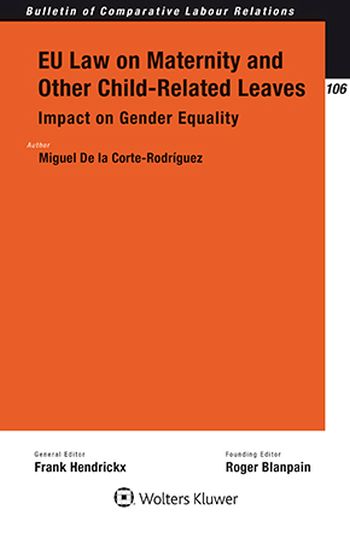
EU Law on Maternity and Other Child-Related Leaves aims to put on the table the limitations and side effects of the current EU legislative framework on maternity leave. The current system is focused on the biological differences of women related to maternity. Although proven effective in protecting pregnancy, giving birth and breastfeeding – that is, the biological differences of women related to maternity – the current EU legislative framework on maternity leave tends to overlook the roles of both parents, especially during the post-delivery period of ‘bonding’ with the child. This framework, along with EU law on parental leave, which does not encourage an equal take-up of the leave, gives rise to serious issues of gender equality affecting both men and women. This deeply researched and urgent book proposes alternative options for future EU law on child-related leave that can be applied to both employees and self-employed workers to mitigate these limitations and side effects.
What’s in this book:
Analysing comprehensively the various EU Directives which, directly or indirectly, relate to maternity leave, paternity leave, adoption leave and parental leave, as well as the corresponding case law of the Court of Justice of the EU, the author uses a social-risk approach and tackles the following issues:
How this will help you:
A more balanced design of child-related leave is a must in today’s society for reasons of fairness and also for economic considerations. This complete analysis of EU legislation and case law about child-related leave – including the first-ever systematic and in-depth analysis on whether maternity leave can be considered discriminatory against fathers and a review of economic literature on how child-related leave affects the situation of women in the labour market – offers forward-looking solutions for child-related leave to enhance gender equality. Practitioners and non-governmental organisations dealing with EU and national matters related to labour and employment law, social security law and gender equality law will welcome this important book, as will academics and policymakers interested in maternity and other child-related leaves.